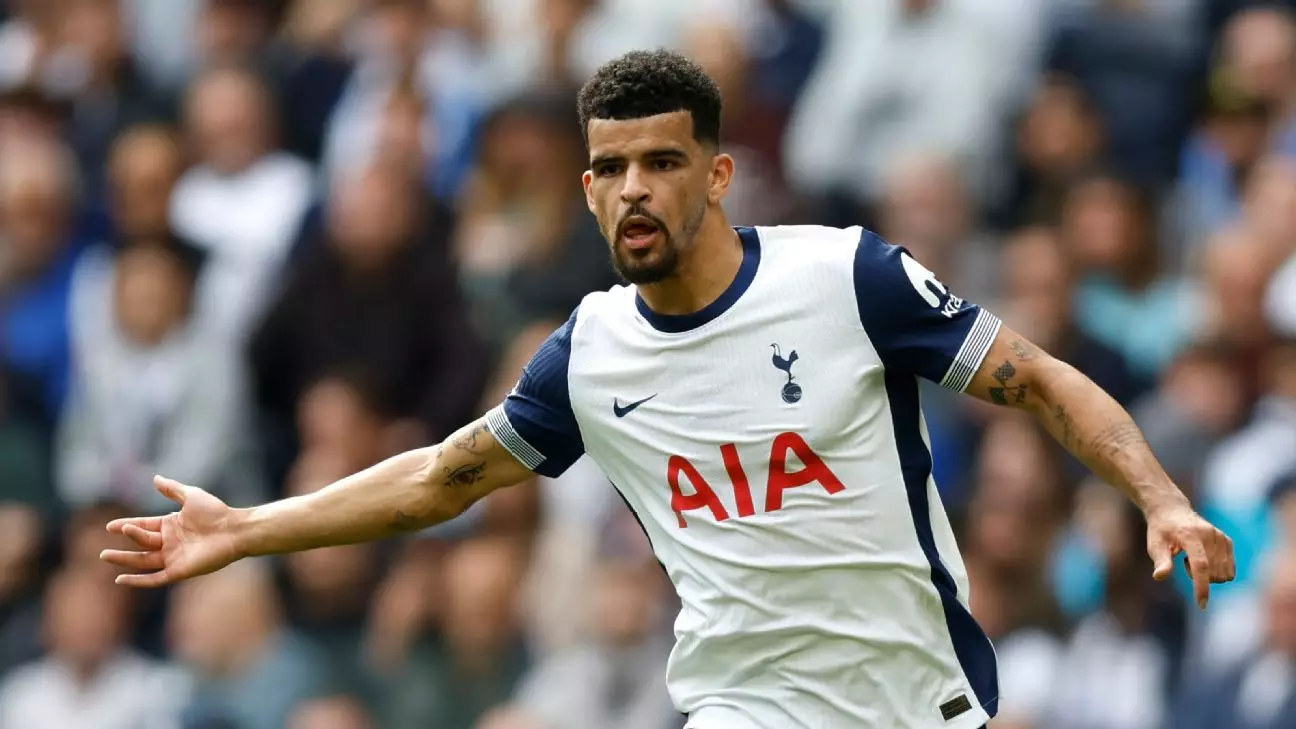In the world of professional football, players and managers often find themselves under the intense scrutiny of fans, pundits, and the media. This scrutiny can escalate rapidly, especially when a player arrives carrying a hefty price tag. Such is the case with Dominic Solanke, whose recent transfer to Tottenham Hotspur for a staggering £65 million ($86 million) has stirred a flurry of expectations. Ange Postecoglou, Tottenham’s head coach, has urged patience from those who are quick to judge Solanke’s performances after an injury-plagued start to his tenure with the club.
Solanke’s situation encapsulates a broader theme in sports: the balance between swift judgement and rational assessment. Football is a game that thrives on immediacy and visceral reactions, and in this environment, a player’s worth can be swiftly inflated or deflated based on a handful of matches. Solanke’s debut was marred by an ankle injury, and during his limited appearances, he has yet to find the back of the net. However, as Postecoglou has pointed out, it is crucial to recognize the constraints of a “small sample” when evaluating a player’s contributions.
Postecoglou’s comments highlight the necessity for patience not just with Solanke but in the overall evaluation of players, especially when they are adjusting to a new club and strategy. The coach noted that Solanke has participated in less than two complete matches, which makes rushing to judgment both premature and potentially damaging. In a culture that demands immediate results, it’s vital to take a step back and appreciate the player’s context. Just as an athlete needs time to acclimatize, fans and commentators also need to allow time for observation before forming opinions.
The expectation that Solanke should perform flawlessly right out of the gate disregards the complexities of his integration into a new team. Postecoglou pointed out the risk of jumping to conclusions; if Solanke had started positively but later hit a slump, the narrative would dramatically shift to criticism. This inconsistency in public perception can weigh heavily on a player’s confidence and career trajectory.
In contrast to the rush for immediate judgment, Postecoglou reaffirmed his belief in Solanke’s long-term potential as an asset for Tottenham. The manager specifically sought Solanke, highlighting his suitability for the team’s vision and tactical requirements. Postecoglou expressed faith that, as Solanke gains match fitness, he will become an effective contributor to the squad. This perspective emphasizes the importance of a manager’s insight and the strategic approach to recruitment.
Furthermore, this situation raises broader questions about how clubs approach player acquisitions. A transfer does not merely stack onto statistics; it involves considering a player’s adaptation to a new environment and the intricate dynamics within the squad. Solanke’s case reminds fans that football transfers are not just about financial figures but about skill sets, team chemistry, and long-term planning.
Drawing on his experience, Postecoglou also addressed the early criticism directed at his own management style. After a disappointing start to the season for Tottenham, including a single win from their first four league matches, the coach acknowledged that criticism is part and parcel of the job. However, he urged everyone involved to maintain perspective, displaying the qualities of a measured leader.
As the season progresses, it is likely that the narrative surrounding Solanke and Postecoglou’s management will continue to evolve. Ultimately, the ability to remain calm amid the storm of public opinion could very well determine Tottenham’s fortunes as they navigate challenges ahead. The enthusiasm displayed when a team is established and performing well can quickly turn sour with stumbles, but that volatility should not overshadow the bigger picture.
The journey of Dominic Solanke within the walls of Tottenham Hotspur offers a reflective moment on patience in football—a virtue that often finds itself overshadowed by the frenzy of immediate feedback. Postecoglou’s approach can serve as a valuable lesson not just for the club but for football fans everywhere: a plea for understanding and patience as players strive to find their footing in the beautiful game.

